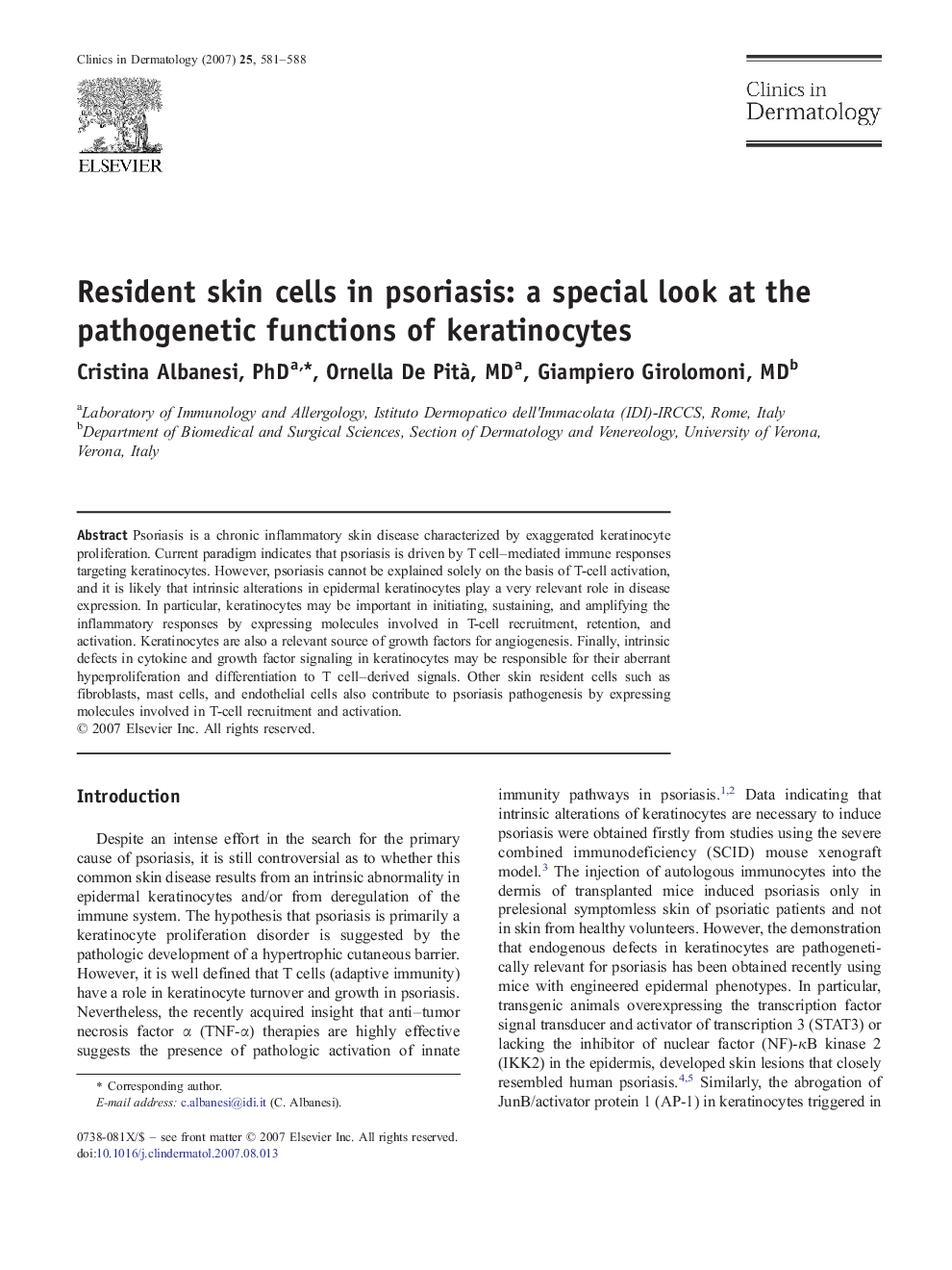| کد مقاله | کد نشریه | سال انتشار | مقاله انگلیسی | نسخه تمام متن |
|---|---|---|---|---|
| 3195205 | 1201430 | 2007 | 8 صفحه PDF | دانلود رایگان |

Psoriasis is a chronic inflammatory skin disease characterized by exaggerated keratinocyte proliferation. Current paradigm indicates that psoriasis is driven by T cell–mediated immune responses targeting keratinocytes. However, psoriasis cannot be explained solely on the basis of T-cell activation, and it is likely that intrinsic alterations in epidermal keratinocytes play a very relevant role in disease expression. In particular, keratinocytes may be important in initiating, sustaining, and amplifying the inflammatory responses by expressing molecules involved in T-cell recruitment, retention, and activation. Keratinocytes are also a relevant source of growth factors for angiogenesis. Finally, intrinsic defects in cytokine and growth factor signaling in keratinocytes may be responsible for their aberrant hyperproliferation and differentiation to T cell–derived signals. Other skin resident cells such as fibroblasts, mast cells, and endothelial cells also contribute to psoriasis pathogenesis by expressing molecules involved in T-cell recruitment and activation.
Journal: Clinics in Dermatology - Volume 25, Issue 6, November–December 2007, Pages 581–588